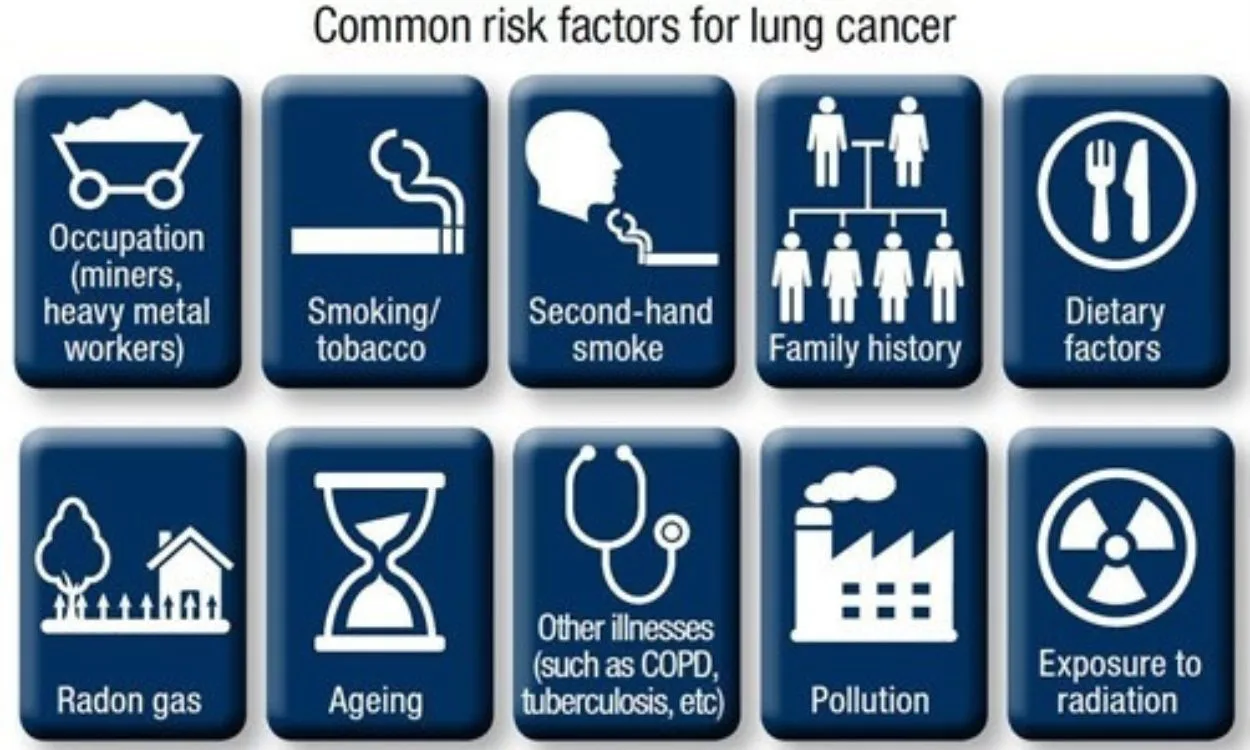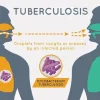What are the Risk Factors for Developing Lung Cancer?
Lung cancer is a serious and potentially life-threatening disease that affects millions of people worldwide. In India, it is one of the leading causes of cancer-related deaths. Understanding the risk factors associated with lung cancer can help individuals make proactive choices to reduce their risk and improve their overall health. In this article, we will explore the various risk factors for developing lung cancer and provide valuable insights for the Indian population.
1. Smoking:
- Smoking is the most significant risk factor for developing lung cancer. It is estimated that approximately 85% of all lung cancer cases are caused by smoking.
- Both active smoking (smoking cigarettes, bidis, or cigars) and passive smoking (inhaling secondhand smoke) increase the risk of developing lung cancer.
- The longer a person smokes and the more cigarettes they consume, the higher their risk of developing the disease.
2. Environmental Factors:
- Exposure to environmental pollutants and toxins can significantly increase the risk of lung cancer.
- Occupational exposure to substances such as asbestos, radon gas, arsenic, chromium, nickel, and certain chemicals can contribute to the development of lung cancer.
- Living in areas with high levels of air pollution, especially in densely populated cities, can also increase the risk of lung cancer.
3. Family History:
- Individuals with a family history of lung cancer are at a higher risk of developing the disease.
- Genetic factors may play a role in increasing susceptibility to lung cancer. However, it is important to note that family history alone does not guarantee the development of the disease.
4. Age:
- The risk of developing lung cancer increases with age. Most cases of lung cancer are diagnosed in individuals over the age of 65.
- However, it is essential to remember that lung cancer can affect people of all ages, including young adults and even non-smokers.
5. Pre-existing Lung Diseases:
- Individuals with pre-existing lung diseases, such as chronic obstructive pulmonary disease (COPD), tuberculosis, or pulmonary fibrosis, have an increased risk of developing lung cancer.
- These conditions can damage the lungs and make them more susceptible to the development of cancerous cells.
6. Radon Exposure:
- Radon is a naturally occurring radioactive gas that can be found in homes and buildings. Prolonged exposure to high levels of radon can increase the risk of lung cancer.
- It is advisable to test homes for radon levels and take appropriate measures to mitigate exposure if necessary.
7. Personal Health Habits:
- Poor lifestyle choices can contribute to the development of lung cancer.
- A diet lacking in fruits and vegetables, sedentary behavior, and obesity can increase the risk of lung cancer.
- Additionally, a weakened immune system due to underlying health conditions can make individuals more susceptible to the disease.
8. Gender:
- Historically, lung cancer has been more prevalent in men. However, the gap has been narrowing in recent years, and the disease is increasingly affecting women as well.
- Factors such as changing smoking patterns and increased exposure to environmental pollutants contribute to the rising incidence of lung cancer in women.
It is crucial to remember that while these risk factors increase the likelihood of developing lung cancer, they do not guarantee the disease. Many individuals without any identifiable risk factors can still develop lung cancer. Therefore, it is essential to be aware of these risk factors and take proactive measures to reduce our chances of developing the disease.
Now that we have discussed the risk factors for lung cancer, let’s explore how technology can help in the prevention and management of this disease. Fitpaa, an end-to-end AI-driven metabolism monitoring and management technology, offers personalized solutions to achieve health and fitness goals, including reducing the risk of developing lung cancer.
Fitpaa uses the latest research in Lifestyle Medicine and Behavioral Therapy to strengthen all 11 organ systems, including the respiratory system, to deliver guaranteed results. By optimizing metabolism, managing nutrition, and incorporating physical activity, Fitpaa helps individuals achieve their health and fitness goals effectively.
If you are concerned about your health and want to make positive changes to reduce your risk of developing lung cancer or any other lifestyle disease, the Fitpaa app can be your ultimate companion. With its personalized Fitpaa Capsule, expert guidance, real-time monitoring, and comprehensive tools, Fitpaa ensures that you stay on track towards achieving a healthy and fulfilling life.
Don’t wait any longer! Start your journey towards better health and download the Fitpaa app today. Your well-being is our mission, and we are here to support you every step of the way.









